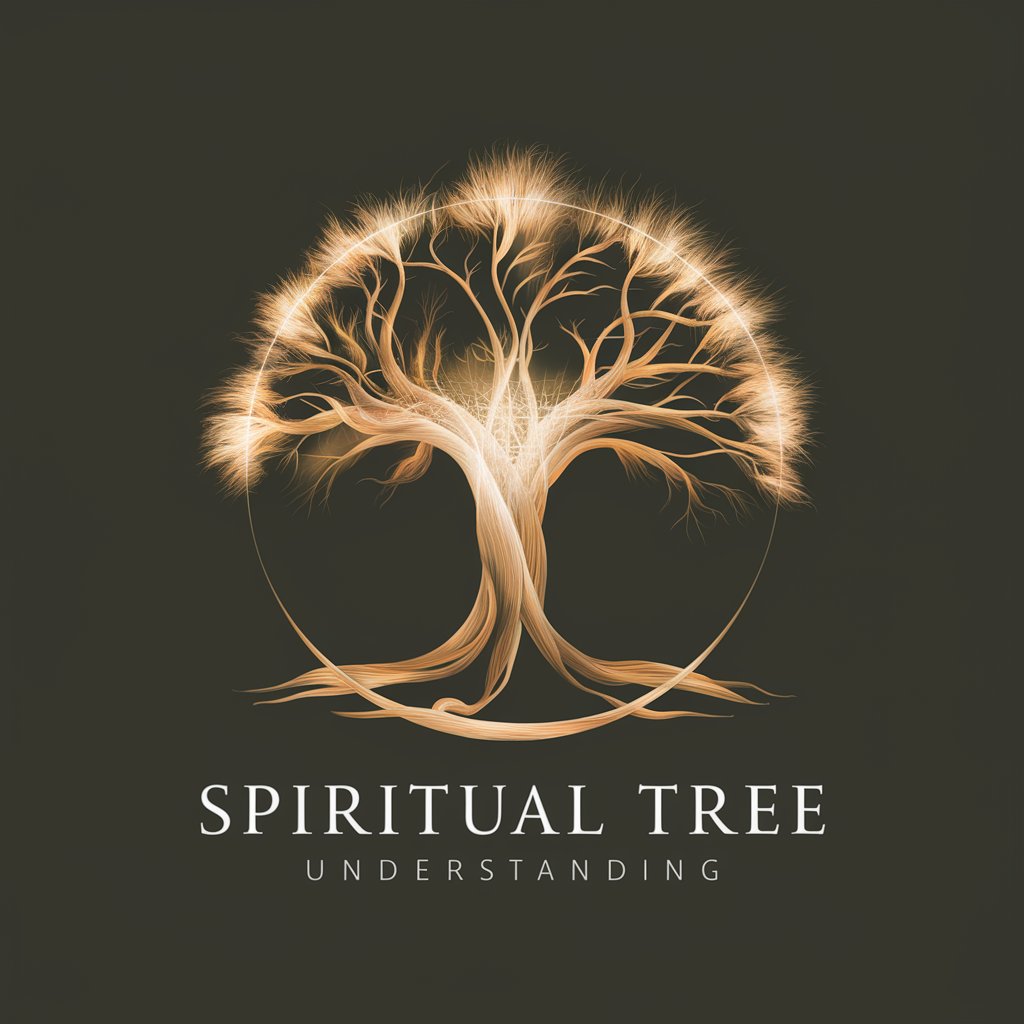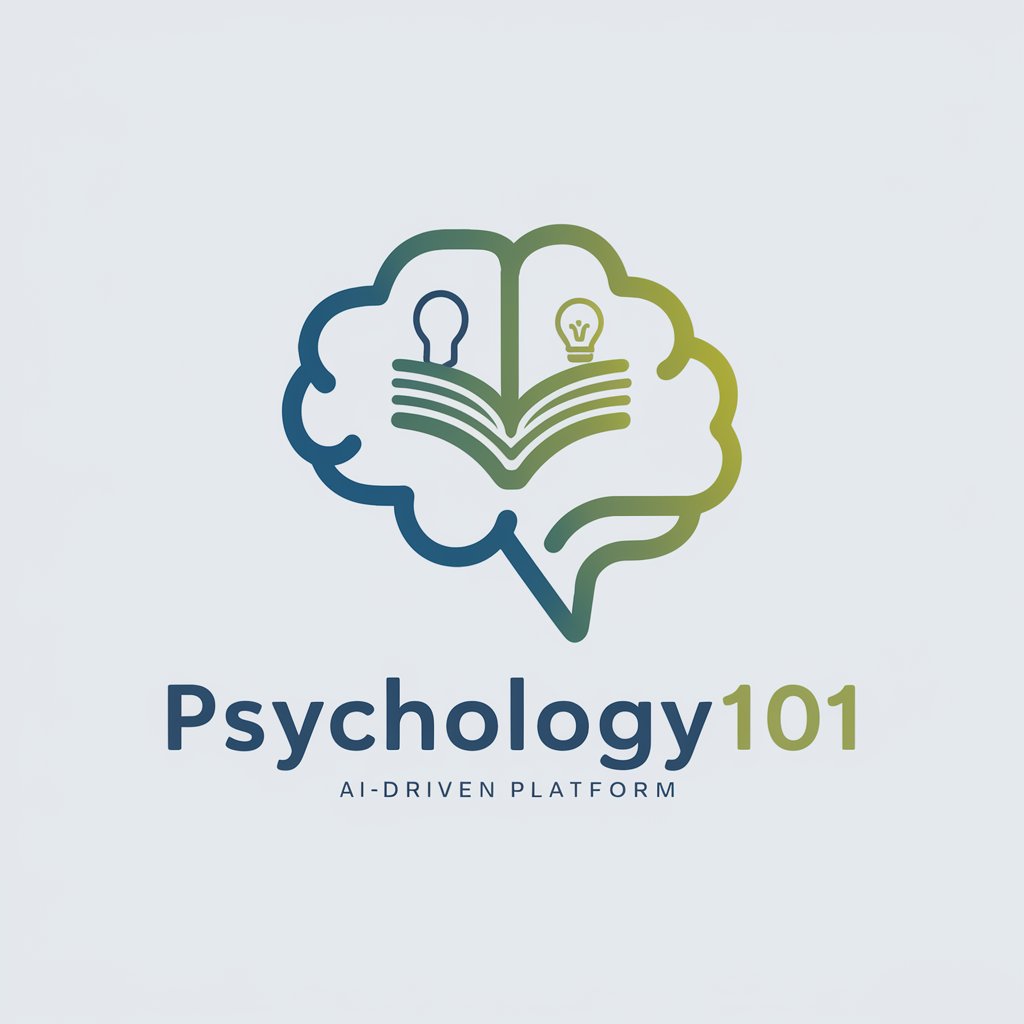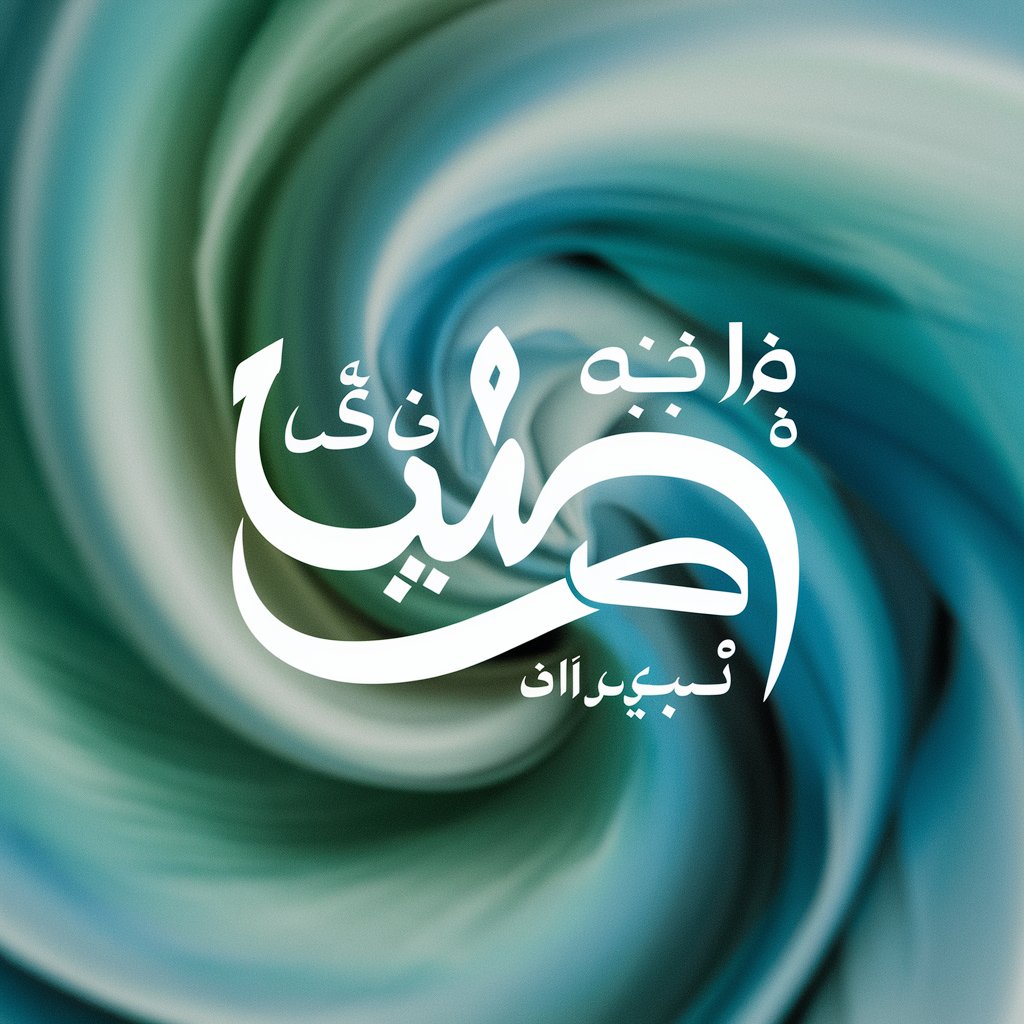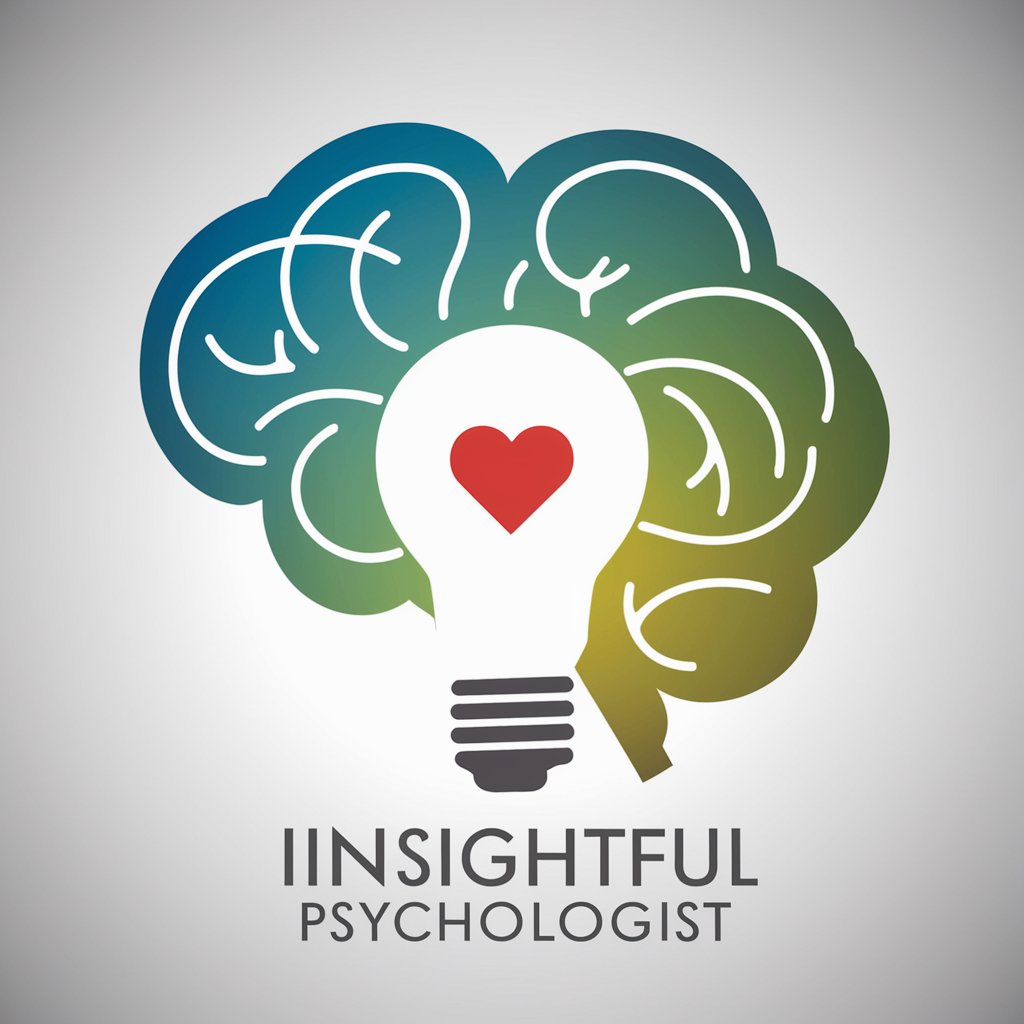
علم النفس الإسلامي - Islamic Psychology - Islamic psychology guidance tool.

نقدم المعلومات والمعارف المتعلقة بعلم النفس الإسلامي والتي تلبي احتياجات الباحثين والطلاب والمهتمين
AI-driven insights on Islamic psychology.
كيف ينظر العلماء المسلمون إلى مفهوم النفس؟
ما هي أهم الكتب في علم النفس الإسلامي؟
من هم أبرز علماء النفس في التراث الإسلامي؟
كيف يمكنني تقديم تغذية راجعة حول البوت؟
Get Embed Code
Introduction to علم النفس الإسلامي - Islamic Psychology
Islamic Psychology (علم النفس الإسلامي) refers to a field that integrates traditional Islamic wisdom with modern psychological theories and practices. Its primary goal is to explore human behavior, cognition, and emotions through the lens of Islamic principles, values, and spiritual teachings. The field encompasses both therapeutic practices grounded in Islamic faith and critical examinations of how Western psychology may or may not align with Islamic ethics. For example, while Western psychology may focus on individual autonomy, Islamic psychology emphasizes communal well-being and spiritual development. Scholars like Abu Zaid al-Balkhi and Al-Ghazali have historically contributed to early psychological concepts, such as cognitive behavioral techniques and the balance between body and soul. A typical scenario might involve using Islamic spiritual practices, such as salah (prayer) or dhikr (remembrance of God), to address mental health concerns like anxiety or depression. Powered by ChatGPT-4o。

Main Functions of Islamic Psychology
Therapeutic Support
Example
In counseling sessions, clients might integrate Islamic principles like patience (sabr) and gratitude (shukr) into their mental health recovery.
Scenario
A therapist uses Qur'anic verses and Prophetic traditions to help a Muslim client reframe negative thoughts into positive spiritual insights, enhancing their emotional resilience.
Critical Evaluation of Western Psychology
Example
Scholars critique the application of secular psychological theories in Muslim societies, particularly in areas where these theories conflict with Islamic values.
Scenario
A paper challenges the use of Freud's psychoanalysis in Muslim contexts due to its incompatibility with the Islamic concept of the soul, proposing alternative models based on Islamic theology.
Spiritual Growth and Well-being
Example
Islamic psychology integrates worship practices into therapeutic techniques, focusing on holistic well-being.
Scenario
An individual struggling with depression incorporates regular acts of worship, like prayer and fasting, as part of their self-care regimen, finding both spiritual and psychological healing.
Research and Development
Example
Islamic psychology encourages empirical research on the effectiveness of faith-based interventions in mental health treatment.
Scenario
A research team investigates the impact of reciting the Qur'an on stress reduction among Muslims in high-pressure environments.
Community-Based Interventions
Example
Focus on collective well-being, where Islamic psychology promotes community support and family therapy grounded in Islamic ethics.
Scenario
A community mental health program is designed using Islamic values to foster family cohesion and address interpersonal conflicts through faith-based conflict resolution methods.
Ideal Users of Islamic Psychology
Muslim Mental Health Professionals
Therapists, counselors, and psychologists seeking to integrate their Islamic faith with their professional practice. They benefit from the ability to offer culturally and religiously sensitive therapy that aligns with their clients’ beliefs.
Muslim Individuals Seeking Faith-Based Counseling
Muslims experiencing psychological distress who wish to seek help from practitioners who understand and respect their religious background. They benefit from therapy that is compatible with their faith, such as addressing anxiety using Islamic spiritual practices.
Islamic Scholars and Academics
Researchers and students in the fields of psychology and Islamic studies interested in exploring the intersection of faith and mental health. They benefit from a framework that critiques and expands upon Western psychological theories from an Islamic perspective.
Community Leaders and Imams
Leaders responsible for providing guidance in Muslim communities. They can utilize Islamic psychology to address mental health concerns within their communities, offering solutions that are rooted in Islamic teachings.
Muslim Families
Families seeking to address interpersonal conflicts or emotional struggles using faith-based approaches. They benefit from family therapy models that incorporate Islamic values like mutual respect, compassion, and patience.

How to Use Islamic Psychology Tool
Visit yeschat.ai for a free trial without login, also no need for ChatGPT Plus.
Start your journey by visiting the platform where the tool is available for free access. No subscription is necessary to explore its features.
Familiarize yourself with key features.
Explore Islamic psychology topics such as self-awareness, mental well-being, and spiritual practices from an Islamic perspective.
Input specific questions or topics.
Ask the tool for guidance or explanations regarding Islamic views on mental health, psychology concepts, and practical applications of psychological principles.
Review the sources and references.
Get insights from a variety of Islamic scholars and traditional texts to ensure you're well-informed on topics related to psychology and spirituality.
Apply the knowledge in practical scenarios.
Use the answers and insights for academic writing, personal spiritual growth, or as a resource for counseling and therapy grounded in Islamic principles.
Try other advanced and practical GPTs
全能助手
Your AI-powered assistant for everything

OCIGPT - Oryon Cyber Intel: OSINT OPSEC CTI DFIR
AI-powered OSINT and cyber intelligence.

Storytelling Scriptwriter by OSSA.AI
AI-driven scripts for viral short-form content.

Skillweed Interview Prep
AI-powered interview prep tailored for every role.

Skillify - Learn skills 3x faster
AI-Powered Conversations for Rapid Skill Building

台灣通勤第一品牌非官方小助手
AI-powered tool for podcast exploration.

ChatGPT Edu
AI-powered assistance for learning and creativity

Úrsula: Diseñadora de prompts educativos
AI-powered prompt generator for educators
Baseball GPT
AI-Powered Insights into Baseball

PPC Ads Virtual Assistant
AI-powered Google Ads optimization tool

ㆍExcel VBAㆍ
AI-powered automation for Excel VBA tasks.

Instructional Design Magic
AI-powered tool for instructional design solutions.

Common Questions about Islamic Psychology Tool
What makes this tool unique in the context of Islamic psychology?
This tool integrates Islamic teachings with modern psychology, offering perspectives rooted in both religious tradition and contemporary mental health practices. It covers spiritual, psychological, and emotional aspects of well-being through an Islamic lens.
Can this tool help in practical mental health issues?
Yes, the tool provides insights into handling mental health challenges from an Islamic perspective, such as coping strategies, spiritual practices, and ethical considerations in counseling based on Islamic values.
How is the knowledge curated within this tool?
The knowledge is drawn from traditional Islamic scholars such as Al-Farabi, Ibn Sina, and Al-Ghazali, combined with modern psychological principles. It includes classic texts, interpretations, and critical analysis, ensuring a comprehensive understanding.
Can I use this tool for academic purposes?
Absolutely. The tool offers deep insights into Islamic psychological theories, making it a valuable resource for research, thesis work, and academic exploration in fields that intersect psychology and Islamic studies.
What kind of issues does this tool address?
It covers a wide range of topics including self-awareness, emotional well-being, mental disorders, coping mechanisms, and even ethical dilemmas in psychology, all viewed through an Islamic framework.





